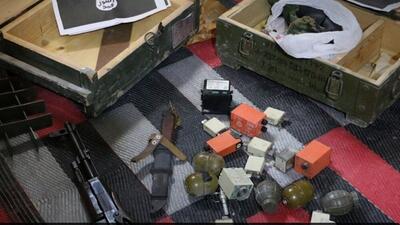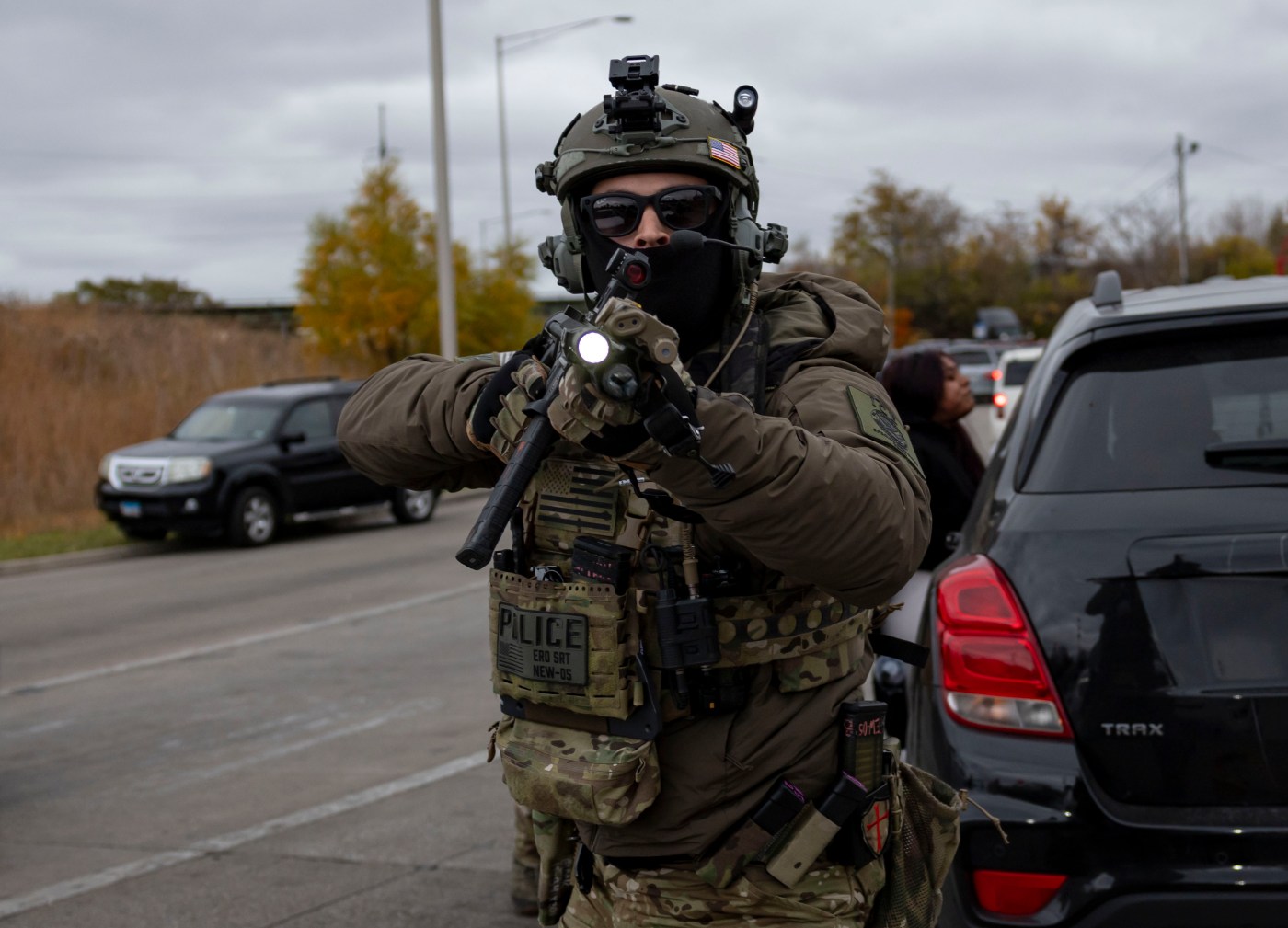**A New Chapter in U.S.-Syria Relations**
*Published November 10, 2025*
Ahmed al‑Sharaa, Syria’s newly installed leader, arrives in Washington this week to meet President Donald Trump, marking a historic moment in U.S.-Syria diplomacy. Al‑Sharaa’s rise comes in the wake of Syria’s prolonged civil war and the eventual fall of Bashar al‑Assad. Once linked to militant groups, al‑Sharaa now heads a transitional government seeking legitimacy on the international stage.
This meeting signals a potential pivot from U.S. isolationist policies toward cautious engagement. For the U.S., the encounter is both an opportunity and a test: it offers leverage to encourage reforms, counterterrorism cooperation, and humanitarian relief—but also carries the risk of legitimizing a government with a controversial past.
### The Controversial “ISIS Crackdown”
Al‑Sharaa’s government recently announced a sweeping operation against ISIS-linked cells, claiming 61 raids and 71 arrests across major Syrian regions, including Aleppo, Idlib, Hama, Homs, and the Damascus countryside.
However, some analysts and media reports suggest the operation may have been staged for public relations purposes, citing orchestrated imagery and theatrical elements in the coverage. Whether genuine or performative, this crackdown illustrates Syria’s pressing need to demonstrate control over extremist groups as it seeks international acceptance.
The credibility of these actions will heavily influence U.S. and global willingness to engage with the new government.
### Voices of Concern: Religious Minorities and Humanitarian Crisis
Ahead of the U.S.-Syria meeting, a coalition of American faith leaders sent a formal letter to President Trump urging him to address the dire conditions faced by religious minorities in Syria.
Christians, Druze, Alawites, and Kurds continue to suffer from displacement, starvation, lack of medical care, and ongoing threats of violence from remaining extremist factions.
The faith leaders emphasized that any discussions on sanctions relief or diplomatic engagement must be tied to tangible commitments for minority protection, humanitarian access, and the cessation of hostilities against vulnerable populations.
—
## Implications of the Syria-U.S. Developments with al‑Sharaa and Trump
### 1. Diplomatic Implications
– **U.S.-Syria relations:** Direct engagement signals a shift from isolation toward potential normalization. This could open doors for future cooperation on regional security, counterterrorism, and reconstruction.
– **Regional perception:** Neighboring countries such as Turkey, Israel, and Jordan will closely watch U.S. involvement. Normalizing relations without safeguards may raise security concerns or geopolitical friction.
– **International legitimacy:** Meeting with the U.S. president boosts al‑Sharaa’s credibility on the global stage, potentially strengthening his position internally and with allies like Russia and Iran.
### 2. Counterterrorism & Security Implications
– **ISIS resurgence risk:** If the reported “ISIS crackdown” is largely staged, extremist groups may remain active, undermining regional stability.
– **Foreign fighter reintegration:** Decisions on handling former militants could either strengthen Syria’s security or risk domestic and foreign terror incidents if poorly managed.
– **U.S. leverage:** Retaining sanctions or conditional engagement is critical to ensure Syria’s cooperation in counterterrorism. Removing leverage prematurely could empower weak governance.
### 3. Humanitarian & Religious-Minority Implications
– **Minority protection:** Christians, Druze, Alawites, and Kurds remain at high risk. U.S. engagement without enforceable guarantees could be viewed as neglecting human rights concerns.
– **Humanitarian aid:** Positive diplomatic outcomes may improve access to water, food, medicine, and safe evacuation routes for vulnerable populations.
– **Faith-based diplomacy:** The faith leaders’ letter highlights how religious actors are influencing foreign policy, underscoring the ethical dimension of international engagement.
### 4. Domestic & Political Implications (U.S.)
– **Trump’s political positioning:** Supporters may frame the meeting as a success if it secures minority protections or advances counterterrorism cooperation. Critics could argue the move risks premature normalization or ignoring ongoing human rights abuses.
– **Policy precedent:** The U.S. approach may set a standard for engaging with transitional governments with militant pasts—balancing leniency with accountability will be a key challenge.
### 5. Strategic Implications
– **Leverage vs. legitimacy tradeoff:** The U.S. faces a choice to lift sanctions to incentivize reform or retain leverage to enforce accountability.
– **Regional balance of power:** Syria’s reintegration could shift dynamics involving Iran, Russia, Israel, and Gulf states. A cooperative Syria might help stabilize the Levant or, if mismanaged, create new tensions.
– **Signal to militant groups:** Al‑Sharaa’s global recognition may deter smaller extremist factions—or embolden them if the crackdown is perceived as merely cosmetic.
—
## Overall Takeaway
The upcoming U.S.-Syria meeting between President Trump and Syria’s new leader Ahmed al‑Sharaa represents a pivotal moment in geopolitics, counterterrorism, and humanitarian diplomacy.
It offers an unprecedented opportunity to stabilize Syria, address the threat of extremist groups, and improve the protection of vulnerable religious minorities. Yet the path forward is fraught with risks.
The credibility of Syria’s reported anti-ISIS operations, the protection of Christians, Druze, Kurds, and Alawites, and the careful use of U.S. leverage through sanctions and conditional engagement will determine whether this engagement produces meaningful change—or merely legitimizes a government with a history of repression.
In short, this is a test of whether strategic diplomacy can be aligned with ethical responsibility.
The stakes are high: success could foster regional stability and humanitarian relief, while failure could embolden militants, deepen suffering, and undermine U.S. influence.
How the U.S. balances pressure, accountability, and engagement will define not only Syria’s trajectory but also the credibility of American foreign policy in the Middle East.
—
**Sources:**
– ZEROHEDGE: *Syria Puts On Show Of ‘Major ISIS Crackdown’ As Sharaa Arrives In D.C. For Trump Talks*
– THE DAILY WIRE: *Ahead Of Meeting With Syria’s Al-Sharaa, Faith Leaders Implore Trump To Speak Out For Persecuted Religious Groups*
https://newscats.org/syrias-new-era-trump-faces-test-of-diplomacy-counterterrorism-and-minority-protection



